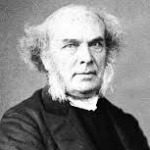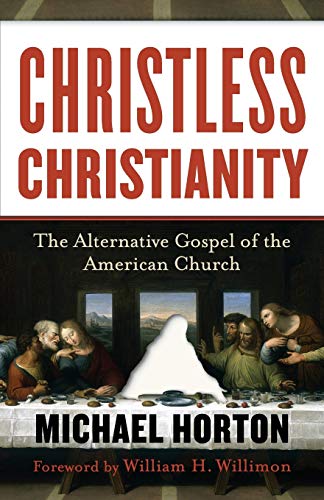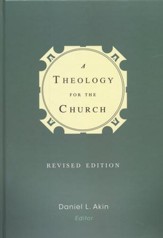Quotes about Church-Pragmatism
We have come to a place in time where we measure the correctness of our plans simply by their seeming to contribute to our favorite aim. We estimate the soundness of our doctrine, not from its tendency to exalt and glorify God…but entirely by the apparent facility with which it enables us to get sinners to turn from their ways.
Far too much ministry today is undertaken without any concern for holiness. We’ve found that changing the way we do church is easier than changing the way we are. We’ve found that we are not sufficiently unlike anyone else to garner notice, so we’ve attempted to become just like everyone else instead.
The Secret to Reaching the Next Generation by Kevin DeYoung taken from Don’t Call it a Comeback, edited by Kevin DeYoung, copyright 2011, Crossway Books, a division of Good News Publishers, Wheaton Illinois 60187, www.crosswaybooks.org, p. 26. Get this book!
Pragmatism is quickly replacing supernaturalism in many churches. It is an attempt to achieve spiritual objectives by human methodology rather than supernatural power. Its primary criterion is external success. It will employ whatever method draws a crowd and stimulates the desired response. Its underlying presuppositions are that the church can accomplish spiritual goals by fleshly means, and that the power of God’s Word alone is not sufficient to break through a sinner’s blindness and hardness of heart.
Resurrecting and Old Heresy from Our Sufficiency in Christ, 1991, Crossway Books, a division of Good News Publishers, Wheaton Illinois 60187, www.crosswaybooks.org. p. 32. Get this book!
Ten steps to becoming a “Pragmatic Church”
1. “Easy-believism” gospel.
2. Place emphasis on some “work” for salvation and not the need to recognize and approach a holy God.
3. Teach half-truths.
4. Teach that grace replaces (instead of produces) holiness.
5. Teach that love and truth are opposed and obedience is legalism or optional.
6. Use fleshly things to attract unbelievers for evangelism and teach them that carnal, worldly lifestyles are acceptable.
7. Avoid the Biblical teachings that create humility in man and exalt God.
8. Teach the means of grace are optional.
9. Be “seeker-friendly” and avoid being “offensive.”
10. Place being “relatable” above “biblical accuracy.”
[Pragmatism] seems predicated on the idea that artificial technique and human strategy are crucial to the church’s mission. Many appear to believe that we can capture people for Christ and the church only if our programs are imaginative enough and our sermons are persuasive enough. Therefore they bend their philosophy of ministry to suit whatever techniques seem to satisfy the most unbelievers.
Resurrecting and Old Heresy from Our Sufficiency in Christ, 1991, Crossway Books, a division of Good News Publishers, Wheaton Illinois 60187, www.crosswaybooks.org. p. 32.
Wherever pragmatism exits in the church, there is always a corresponding de-emphasis on Christ’s sufficiency, God’s sovereignty, biblical integrity, the power of prayer, and Spirit-led ministries. The result is a man-centered ministry that attempts to accomplish divine purposes by superficial programs and human methodology rather than by the Word or the power of the Spirit.
Religious Hedonism in Our Sufficiency in Christ, 1991, Crossway Books, a division of Good News Publishers, Wheaton Illinois 60187, www.crosswaybooks.org. p. 152.
The most basic truths of our faith have fallen victim to [pragmatic], self-centered theology. Many modern-day evangelists have reduced the gospel message to little more than a formula by which people can live a happy and more fulfilling life. Sin is now defined by how it affects man, not how it dishonors God. Salvation is often presented as a means of receiving what Christ offers without obeying what He commands. The focus has shifted from God’s glory to man’s benefit. The gospel of persevering faith has given way to a kind of religious hedonism. Jesus, contemporary theology implies, is your ticket to avoiding all of life’s pains and experiencing all of life’s pleasures.
Religious Hedonism in Our Sufficiency in Christ, 1991, Crossway Books, a division of Good News Publishers, Wheaton Illinois 60187, www.crosswaybooks.org. p. 154-155.
Pragmatism is another non-Christian philosophy that has found its way into the church. Since we can never know what is true or good, according to pragmatist philosophers, we should simply do “what works,” conceived of in material terms. This is an important strain of American philosophy, from the modernist John Dewey with his atheism and socialism to the postmodernist Richard Rorty with his relativism and leftist politics. Few Christians would agree with these philosophers if they listened to them, but simplified pragmatism can be heard constantly in church committee meetings, church-growth seminars, and books for pastors. “What works” — to increase church attendance, attract non-Christians, bring in more money, or achieve another goal — can trump all theological, historical, and biblical considerations.





